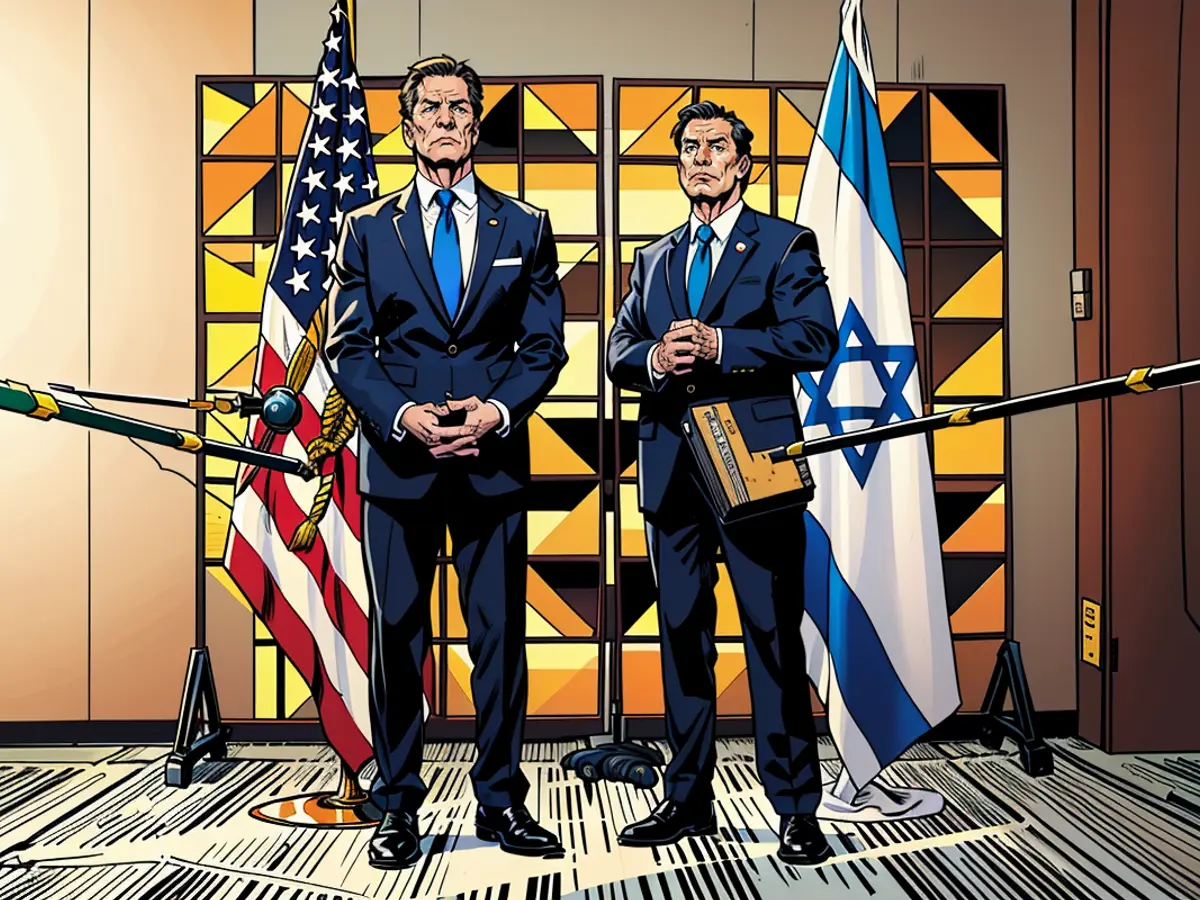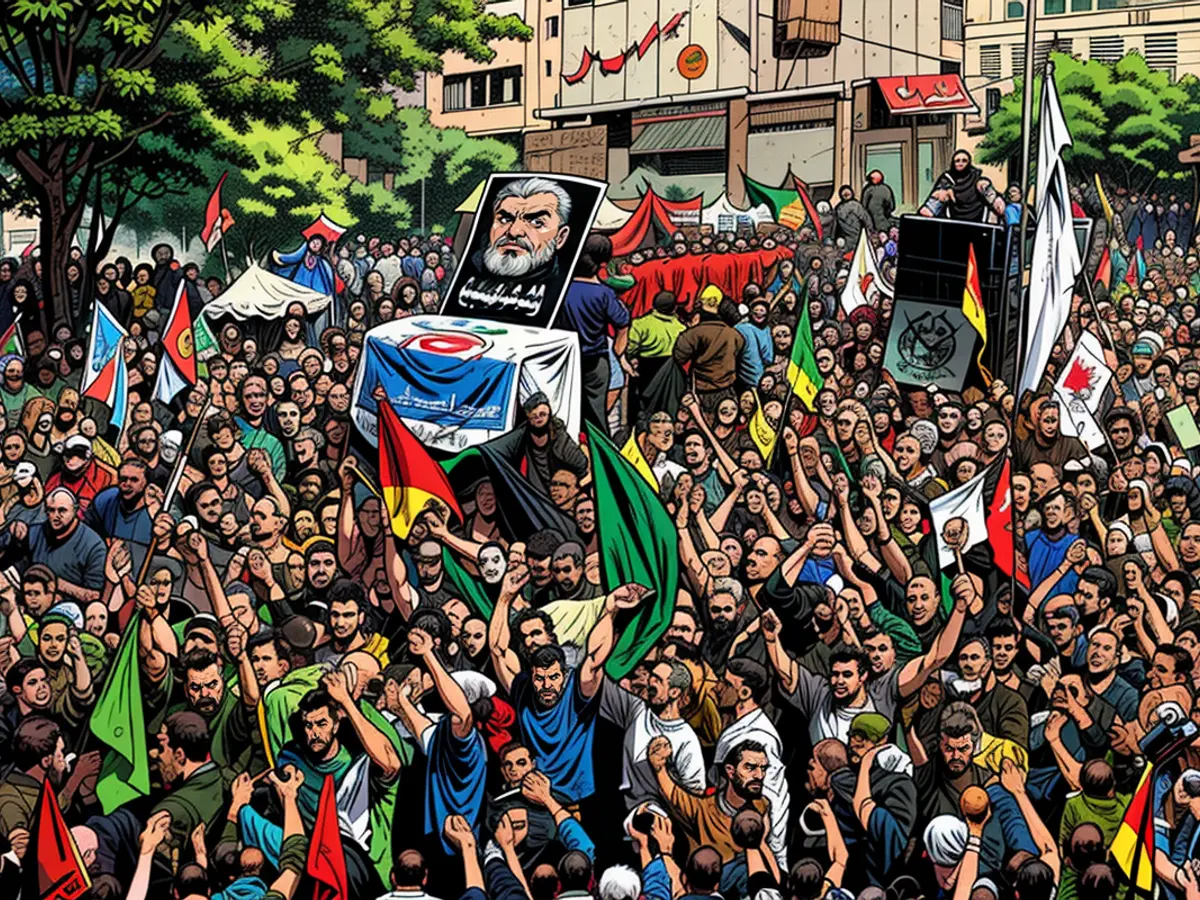Iran indicates no rush in retaliating against Israel following the assassination of a Hamas political figure.
"Time allows for deliberation in our response, and this process might take some time," Ali Mohammad Naeini reportedly mentioned on Tuesday, as reported by state media.
In Tehran on Tuesday, Mohsen Rezzaee, a former commander-in-chief of the IRGC, shared his thoughts with CNN. He indicated that Iran's actions would be strategic and measured.
The Middle East has remained on edge since the assassination of Haniyeh in Tehran last month. This happened just a day after the death of Hezbollah commander Fu’ad Shukr in an airstrike in Beirut.
Israel acknowledged responsibility for Shukr's death, but has yet to address its involvement in Haniyeh's demise. A source privy to the matter revealed to CNN earlier this month that Haniyeh was killed using a concealed explosive device within his guest house residence.
Iran and its allies, such as Hezbollah in Lebanon and Hamas in Gaza, attributed both killings to Israel and vowed retaliation, resulting in weeks of tense diplomacy to avert a full-scale regional conflict.
Following Haniyeh's death, Iranian Supreme Leader Ali Khamenei stated, "You have killed our respected guest in our home, and now the stage is set for your severe retribution." Hezbollah leader also expressed that a response to the strike which killed Shukr was imminent.
Three weeks post the twin killings, the spokesperson for the IRGC, Naeini, could imply a softening of Iran's harsh rhetoric. He suggested that Iran's response may vary from previous operations against Israel, stating that Tehran would not act hastily.
According to Naeini, "As of now, the Zionists ought to adapt to instability, and our response might not mirror past activities. The response patterns are not identical. Our commanders possess the knowledge and the art of appropriately retaliating against the adversary, and they will not resort to impulsive actions."
In April, Iran discharged roughly 300 projectiles towards Israel, marking its first direct strike against the country after condemning a strike on an Iranian diplomatic complex in Damascus, Syria, that killed Mohammed Reza Zahedi, a high-ranking IRGC officer.
Naeini further commented, "The Zionist regime (Israel) has acknowledged defeat, even American politicians have acknowledged this, and have yet to attain their objectives," referring to Israel's conflict in Gaza, which has continued for over 10 months, with the purpose of triumphing over Hamas and retrieving the hostages it captured on October 7.
Negotiations to achieve a ceasefire between Israel and Hamas intensified after the twin killings of Shukr and Haniyeh, with Arab and Western authorities striving to prevent an all-out war.
During a conversation with CNN, Razaee, the former IRGC commander, voiced his perspective. He said, "A ceasefire in Gaza is required soon."
"The United States and Israel should not repeat their mistakes. If, at the onset of the Gaza war, the United States had intervened to stop Israel and (Prime Minister Benjamin) Netanyahu, the war would not have extended. Therefore, the primary cause of the war's prolongation is the United States and Israel. The longer the war continues, the more damage the United States will incur," Razaee added.
Regarding Iran's response to Israel, Razaee stated, "We have assessed the possible repercussions. We will not allow Netanyahu, who is drowning in a swamp, to save himself." He went on to say, "Iran's actions will be carefully calculated."
Following renewed negotiations in Doha's capital last week, US Secretary of State Antony Blinken stated on Monday that Israel had "accepted" a proposal to mitigate gaps in ceasefire discussions, and that "the critical step now is for Hamas to concur with the same terms ahead of further anticipated negotiations this week."
There have been hints that Iran may abandon plans to strike Israel if a ceasefire accord is reached, but Iran's mission to the United Nations announced 10 days ago that Tehran's retaliation is "completely unrelated to the Gaza ceasefire."
Some officials suspect that Iran is dragging its feet, apprehensive that its retaliation could ignite a wider conflict. One diplomat suggested that Hezbollah and Iran had "trapped themselves" in their vows of retaliation.
CNN's Tamara Qiblawi contributed to the reporting.
The Middle East, currently tense due to recent incidents, is closely watching Iran's response to the assassination of Haniyeh, which occurred in its home territory. Iranian officials, such as Ali Khamenei and Ali Mohammad Naeini, have threatened severe retribution against Israel, a country located in the world at large.








